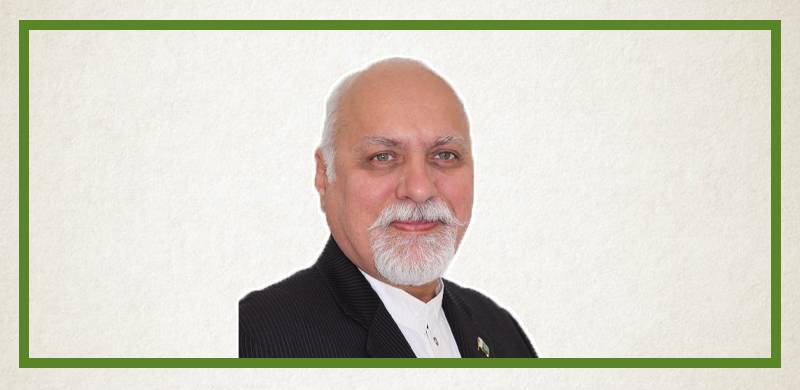
Abdul Qayyum Kundi argues that PPP at every juncture reminds us of its ethnic roots for political opportunism which is eventually making it irrelevant. Its political ideology has inherent contradictions in it.
It takes decades to build a party that evolves through grassroots movement and it also takes decades for a party to have a slow death once they become irrelevant. PPP has been a party on the deathbed since the untimely death of Benazir Bhutto. It was expected that Bilawal will revive the party but so far his performance leaves much to be desired.
Shallow talk without translating into policy and governance has been the hallmark of PPP.
Bilawal's speech last week at LUMS once again made it quite clear that the chances of revival of PPP are not there. In this particular talk, Bilawal focused on four ideological positions including the idea of Pakistan, the 1973 constitution, the 18th amendment, and the socialist economic model.
He suggested that the two-nation theory, which was the foundation of movement for independence, has transitioned into many nations coming together to form Pakistan. From this perspective, the country is a compromise arrangement between the underlying nations and will continue as long as these narrow tribal interests are served. He does not believe in any Pakistani national identity as no such identity is needed.
This conforms with his rejection of the basic premise of the two-nation theory. This also explains why PPP at every juncture reminds us of its ethnic roots for political opportunism. He believes that the 1973 constitution is the only viable social contract which explains why PPP has not welcomed our suggestions for dialogue to build a second republic.
Many other parties including PML-N has already accepted it. He believes that the 18th amendment has devolved power to provinces and ensured the autonomy of these federating units.
Finally, he believes a socialist economic model which is a softer form of his grandfather's decision to nationalise commercial enterprises and does not support privatisation.
I disagree with all these ideas of Bilawal and PPP as these are obsolete in today's Pakistan. Two nation theory was based on the concept that the faith Islam unites the Muslims to form a community. Islam as a universal value appreciates and encourages ethnic diversity. It considers plurality a strength rather than a hindrance to the emergence of Pakistani identity.
Almost every country is a combination of various ethnicities but these narrow identities can not be allowed to overrule the larger national identity.
The nations evolved when tribes gave up their micro identities for a larger one with shared values. Like his grandfather, Bilawal links ethnicity with a region for their family political interests. Primary building blocks of ethnicity are language and culture rather than a region. Bengalis don’t just live in Bangladesh there are probably more Bengalis in Calcutta and neighboring regions of India.
Similarly, Arabs are spread over many countries. This linkage of ethnicity with the region is one of the fundamental flaws of the 1973 constitution. That is not the only division coded in the constitution to differentiate between citizens.
The other topic of Bilawal's talk in LUMS was the PPP legacy of helping build the current republic through the 1973 constitution. This constitution does not have its roots in people and was never ratified by the citizens of the country. After the separation of East Pakistan, the 1970 election was annulled and lost its legitimacy because it failed to honour the mandate given to the Awami League. Even if the political parties agreed on a constitution it should have been ratified through a referendum.
But no such efforts were made rather political elite of the country got together to develop a constitution that served their interests. All those elites benefited from it including PPP, ANP, Muslim League, JI, and JUI F while nothing had been delivered to the people. The 18th amendment tried to reinvigorate a dying constitution by giving more resources and power to provinces.
These powers have benefited region-centric political parties rather than help solve issues of the people. People are still deprived and hungry for their basic needs like education, health, jobs, and justice while the patrons of the political parties got richer and more powerful.
The last item discussed by Bilawal was support for a socialist economic model. This is also borrowed from his grandfather who nationalised industries to consolidate power in his own hands. The state has no right to run a commercial enterprise and compete with citizens. The state's role is to ensure labor is treated fairly; there is level playing field available to all citizens in economic opportunity; impose standards for climate and consumer protection, resources of the state are spent equitably, and there is no monopolisation of industry.
The PPP legacy of the Bhutto republic has failed to deliver any of it. The state is burdened but loss-making state enterprises which are a legacy of PPP nationalisation of the 1970s. The irony is that Bilawal is socialist in his economic philosophy but a feudal lord in practice. He has never worked in his life and has no idea what it takes to earn bread to grow a family.
PPP must realise that they are out of tune with the times. Their political ideology has inherent contradictions in it. They are the only party that is not interested in a national dialogue to build a new republic. They seem to be afraid of losing the last bastion of their political power. They have to reconsider their position or will be left behind. The choice is clear the nation needs a new republic that unites, honors, and rewards its citizens without discrimination based on ethnicity, faith, gender or social status.
